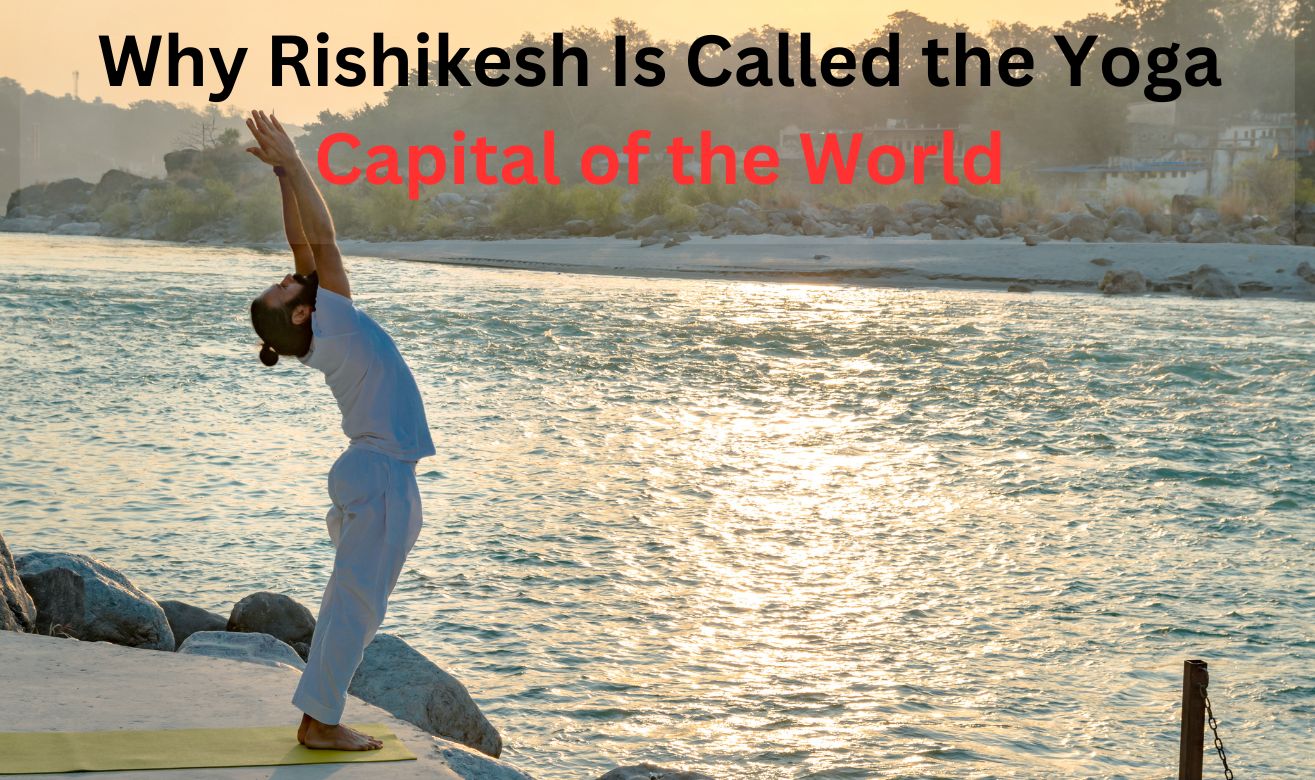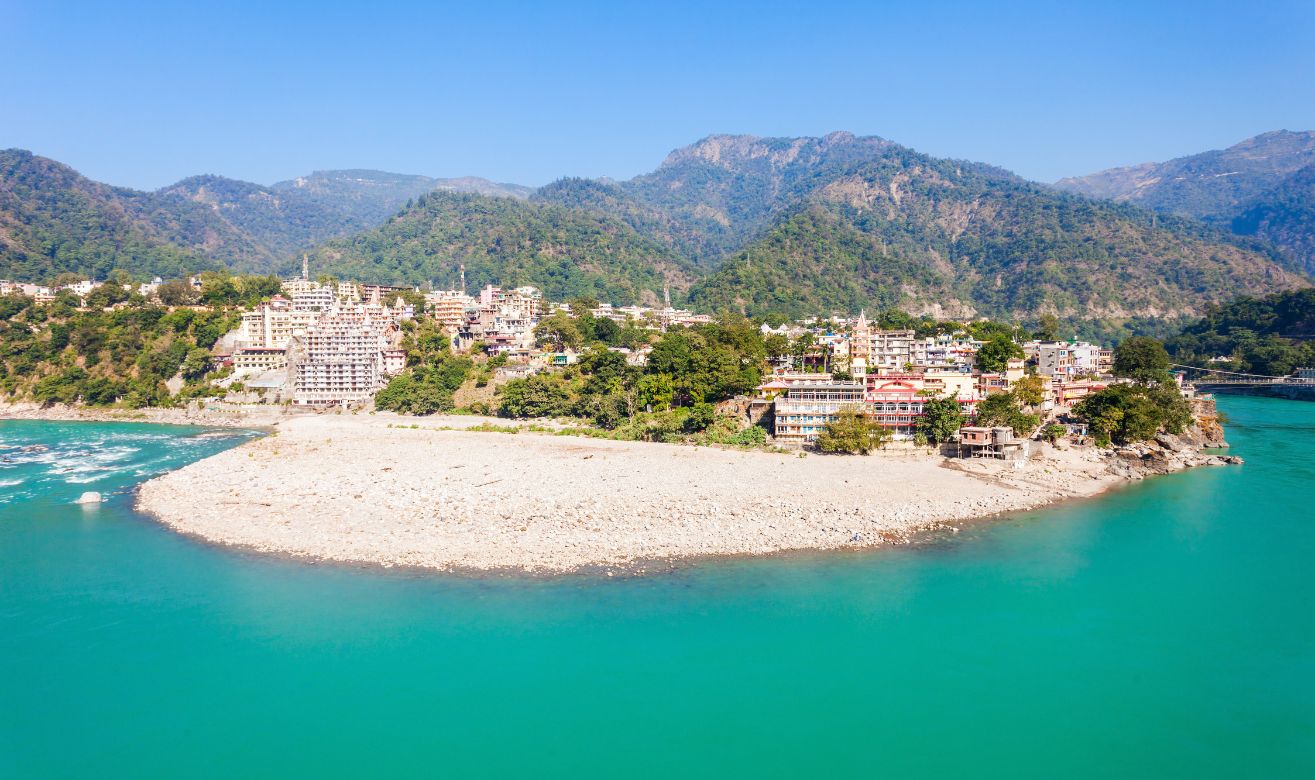Each year, thousands from across the world travel to Rishikesh—not for luxury or leisure, but for something deeper. They come with questions modern yoga studios can’t answer. What is the real purpose of yoga? How do you live it beyond the mat?
Many arrive after years of practice in the West, only to realise that something has been missing: the spiritual depth, the environment soaked in silence, and the lineage of authentic teachers. In Rishikesh, yoga returns to its roots—not as fitness, but as inner discipline.

What Makes Rishikesh the Yoga Capital of the World?
1. Rishikesh Is Tapo-Bhumi—The Land of Ancient Yogis
The foundations of yoga were laid here. For centuries, sages like Guru Vashishta, Swami Sivananda, and others meditated in these hills. The Sanskrit word tapo-bhumi means “land of spiritual practices.” The entire town echoes that energy.
The Vedas and Upanishads mention the Himalayas and the Ganga valley as the ideal setting for spiritual discipline. Yoga here isn’t an imported model—it’s homegrown.
“In Rishikesh, yoga is not just taught—it is lived.”
2. The Ganga: A Living Symbol of Purity and Renewal

No other yoga city in the world has the Ganga. This river isn’t just water. It’s a moving prayer, purifying not just the body but the mind. Morning dips before class, evening aarti, silent walks by the banks—all become part of your yoga journey.
3. Global Yet Rooted: Rishikesh Balances Tradition with Accessibility
You’ll meet teachers from Berlin, students from New York, couples from Marseille—all drawn to one thing: authenticity. Rishikesh offers world-recognised certifications like 200-hour Yoga Teacher Training through schools registered with Yoga Alliance, without diluting its spiritual roots.
At Yogaadi, our courses blend modern anatomy with yogic philosophy from original scriptures. We often say:
🔗 Explore our 300-Hour Yoga Teacher Training in Rishikesh
4. Not Just Physical—Complete Yoga Is Practised Here
Most people in the West associate yoga with asana. In Rishikesh, asana is just the beginning. You’re also taught:
- Pranayama (breath control)
- Dhyana (meditation)
- Yogic lifestyle & ethics
- Mantra and Bhakti yoga
- Vedic diet and cleansing kriyas
Even our short retreats, like the 5-Day Yoga Retreat, introduce these holistic elements.
5. Yoga Schools with Lineage, Not Franchises
What sets Rishikesh apart isn’t just the number of yoga schools—but their roots in real spiritual lineages. Ashrams like Sivananda Ashram and Parmarth Niketan still teach as they did 50 years ago. You’re not buying a course—you’re entering a parampara (tradition).
Even modern schools here remain respectful of those roots. Yogaadi, for instance, integrates classical texts like the Bhagavad Gita and Yoga Sutras of Patanjali in the curriculum.
6. Peaceful, Vegetarian, and Spiritually Aligned Environment
Rishikesh is officially a meat- and alcohol-free zone, enhancing the sattvic (pure) environment. The town is filled with:
- Ayurvedic cafes
- Silent walking trails
- Bookshops on Indian philosophy
- Massage centres using traditional oils
It’s a lifestyle, not a weekend class.
“In Rishikesh, every element supports your inner growth—from food to conversation.”
Conclusion: Why Rishikesh Will Always Be the Yoga Capital
From mythology to modernity, from Himalayas to heart-centred teachings, Rishikesh is yoga in its most complete form. It is where the body, breath, and belief unite. It’s not the infrastructure or popularity that makes it the capital—it’s the unbroken spirit of yogic life that continues to flow here.
FAQs: Why Rishikesh Is Called the Yoga Capital of the World
1. Why is Rishikesh famous for yoga?
Rishikesh is home to ancient ashrams, spiritual masters, and the holy Ganga. It combines geography, culture, and tradition to offer authentic yogic learning.
2. Are Rishikesh yoga schools internationally certified?
Yes. Many, like Yogaadi, are registered with Yoga Alliance and follow standards recognised across the UK, Europe, and USA.
3. Is yoga in Rishikesh suitable for beginners?
Absolutely. Programs from 100-hour to 300-hour cater to all levels, starting from basic breathing techniques to advanced philosophy.
4. Can I get a yoga teaching certificate in Rishikesh?
Yes. Upon completion of courses like 200-hour YTT, you’ll receive certification that qualifies you to teach globally.
5. What makes Rishikesh different from other yoga destinations?
It’s the combination of natural beauty, lineage-based teachings, and a spiritually charged atmosphere that no city can replicate.
